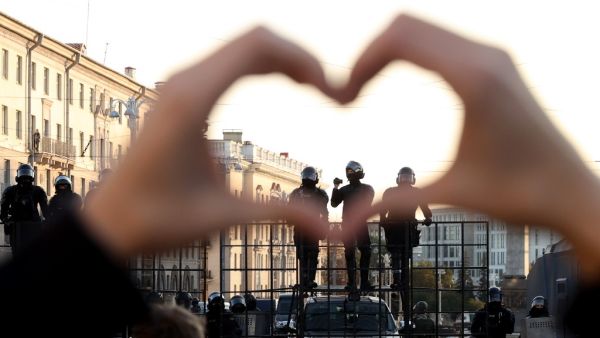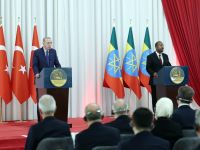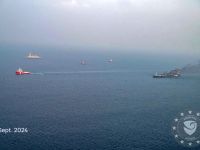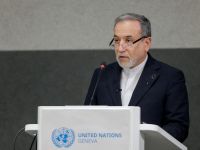Foreign ministers of European member states convened a meeting in Brussels Monday to discuss current affairs, including the tension in the Eastern Mediterranean involving Turkey and Greece and the crisis in Belarus.
“We have three main points for discussion, and Belarus is very high in the agenda,” foreign policy chief Josep Borrell told reporters before the meeting, adding that the positive momentum in Libya and relations with the African Union will also be discussed.
Borrell said that the EU will discuss how to support the people of Belarus in the face of ongoing repression of peaceful demonstrations.
“Today we will discuss how to review our relationship with the Belarusian government according to the situation where we don’t recognize [President] Lukashenko,” Borrell added, referring to the country’s longtime ruler, who claimed re-election in August polls disputed by the country’s opposition.
On Libya, Borrell said that there is positive momentum thanks to a recently declared cease-fire, and added: “I see a reason for cautious optimism.”
The Eastern Mediterranean and Venezuela are also on the council’s agenda.
A press conference will be held after the meeting, set for around 3 p.m. (1300GMT).
Tension in Eastern Med
Tensions have recently escalated over the issue of energy exploration in the Eastern Mediterranean.
Greece has disputed Turkey's energy exploration in the region, trying to box in Turkish maritime territory based on small islands near the Turkish coast.
Turkey – the country with the longest coastline on the Mediterranean – has sent out drill ships to explore for energy on its continental shelf, saying that both Turkey and the Turkish Republic of Northern Cyprus have rights in the region.
To reduce tensions, Turkey has called for dialogue to ensure the fair sharing of the region’s resources.
Meanwhile, Turkish and Greek military delegations have held technical meetings at NATO headquarters in Brussels to reduce the risk of an incident in the Mediterranean.
This article has been adapted from its original source.








